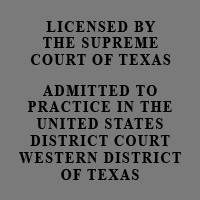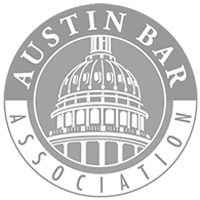A Mexican Gestor That Bribes a Government Official on the Behalf of a Multinational Corporation Can Be The Basis of a Foreign Corrupt Practices Violation and SEC Whistleblower Reward Lawsuit by Mexico Gestor Contract Bribe Whistleblower Reward Lawyer, Mexican Official Gestor Bribe Bounty Lawyer, Mexico Gestor Bribe Government Official Lawyer, Foreign Corrupt Practices Act Violation Lawyer Jason S. Coomer
Illegal payments made to a gestor by an international corporation can be the basis for a Foreign Corrupt Practices Act Violation and a whistleblower reward lawsuit. Large multinational corporations that use a gestor can be held responsible, if their agent or gestor illegally bribes a government official. For more information about a Foreign Corrupt Practices Act Violation Whistleblower Reward Lawsuit regarding a gestor government official illegal bribe, kickback, and/or other illegal act, please feel free to contact Mexico Gestor Bribe Lawyer, Mexican Government Official Gestor Bribe Lawyer, Mexico Gestor Illegal Kickback Lawyer, and Foreign Corrupt Practices Act Bounty Action Lawyer Jason Coomer via e-mail message or use our submission form to contact us regarding a potential Mexico Gestor Contract Bribe Bounty Action, Mexican Government Official Gestor Bribe Whistleblower Lawsuit, Latin America SEC Gestor Foreign Corrupt Practices Act Whistleblower Bounty Action, Central America Gestor Illegal Payment Whistleblower Reward Lawsuit, or Multinational Corporation Gestor Illegal Act Bounty Action.
Wal-Mart's Use of Gestores to Bribe Mexican Government Official Is Under Investigation and May Result in a Billion Dollar Fine From the United States SEC for Violations of the Foreign Corrupt Practices Act
A recent New York Times article details evidence that Wal-Mart and its subsidiary Wal-Mart de Mexico of orchestrating a campaign of bribery to win market dominance in Mexico, then attempting to cover up violations of the Foreign Corrupt Practices Act. These allegations include Wal-Mart's use of gestores to bypass Mexican laws and obtain permits throughout Mexico. Experts following the allegation and the SEC's investigation of these gestor bribery allegations predict that the actions and cover up may result in a Billion dollar fine as well as criminal sentences for Wal-Mart executives that may have covered up the illegal gestor bribes.
Wal-Mart is not the only multinational corporation that may be the subject of Foreign Corrupt Practices Act Violations. Mexican authorities have announced that they were investigating allegations that a U.S. aviation company paid bribes to secure contracts to maintain government aircraft. Mexico’s Attorney General’s Office said the probe involved six officials at two federal agencies and two state governments who allegedly took bribes from Oklahoma-based BizJet International Sales and Support Inc. in exchange of work contracts. Prosecutors said the case involved about $2 million in bribes for contracts worth at least $24 million. The U.S. Department of Justice said BizJet had agreed to pay an $11.8 million fine to settle allegations its employees bribed government officials in Mexico and Panama to secure maintenance contracts.
Multinational Corporations Using Gestores to Make Illegal Bribes to Mexican Government Officials Can Be The Basis For A Mexico Gestor Contract Bribe Whistleblower Reward Lawsuit, Mexican Official Gestor Bribe Bounty Action Lawsuit, & Mexico Foreign Corrupt Practices Act Violation Gestor Bounty Action Lawsuit
Multinational corporations that offer illegal bribes and kickbacks through Gestores to obtain business and large international contracts are the target of several new anti-bribery and whistleblower reward bounty action laws that have been passed around the World. In the United States new whistleblower reward bounty actions have been enacted to encourage professionals and other people with specialized knowledge of illegal international gestor contract bribes, gestor illegal kickbacks to foreign government officials, gestor false accounting statements to investors, and other Foreign Corrupt Practices Act violations to report illegal activity. The bounty actions offer large financial rewards as well as protection to Mexican whistleblowers, multinational corporation employee whistleblowers, and other whistleblowers that expose government corruption.
Gestores are common in Mexico, Latin America, Italy, Brazil, and many other cultures. Some gestores are legitimate and allow citizens routinely pay a gestor to stand in line for them at the driver’s license office or to help property owners and businesses work through bureaucratic red tape and legal issues. Under the Foreign Corrupt Practices Act (FCPA), gestores that are paid to make qualified facilitating payments are considered legal. This qualified facilitating payments made in accordance with local custom or to expedite or secure the performance of routine government action that the payor is entitled to receive, such as government action to obtain licenses or permits, process government papers such as visas and work orders, or obtain government provided services such as police protection, mail, power or phone services may be exempted from coverage by the FCPA.
However, the gestor may be illegal and a violation of the Foreign Corrupt Practices where a multinational corporation using a gestor to offer or make payments or give anything of value, either directly or indirectly, to any foreign official, political party or political candidate, or public international organization to obtain or maintain business when the offer, payment or gift is intended to influence a desired action; induce an act in violation of a lawful duty; cause a person to refrain from acting in violation of a lawful duty; secure any improper advantage; or influence the decision of a government or instrumentality.
These prohibitions preclude gestores from making payments were the payments are unlawful under the laws of the country in which payment was made. These payments include payments that are not legitimate expenses directly related to the promotion, demonstration or explanation of the company’s product or services and payments that are not made in accordance with a contract between the company and a foreign entity. These prohibitions also include third party actions through a gestor where the multinational corporation knows that a payment or a gift will be provided to a government official or agency for the purpose of obtaining a contract or business.
Mexico Gestores Contract Bribe Bounty Action Lawyer, Mexican Government Official Gestor Illegal Kickback Bounty Action Lawyer, Mexico Gestor Foreign Corrupt Practices Act Violation Bounty Action Lawyer, Mexico Gestor Contract Illegal Kickback Whistleblower Reward Lawyer, and Mexico Gestor Bribe Whistleblower Reward Lawyer
With the attraction of foreign business to Mexico has come competition between large foreign multinational corporations that are vying through legal and illegal acts to obtain large Mexican oil & gas contracts, Mexican industrial manufacturing contracts, Mexican manufacturing permits, Mexican heavy industry contracts, and Mexican construction contracts. This increased competition between large multinational businesses has lead some businesses to use gestores to offer illegal gestor bribes to Mexican government officials for government contracts. The use of illegal gestor bribes, illegal kickbacks from gestores, and other illegal practices can be the basis of a Foreign Corrupt Practices Whistleblower Reward Lawsuit.
When large foreign companies and/or Mexican companies violate international law at the expense of Mexican citizens and local citizens through bribes, illegal kickbacks, false accounting statements, tax fraud, and other illegal acts, new bounty actions and whistleblower reward laws may provide the opportunity for whistleblowers to expose illegal acts and to also claim large rewards for turning in corrupt government officials and corporations.
Thursday, October 21, 2010
WASHINGTON – Lindsey Manufacturing Company, an Azusa, Calif., company and two of its executives were indicted today for their alleged roles in a conspiracy to pay bribes to Mexican government officials at the Comisión Federal de Electricidad (CFE), a state-owned utility company, announced Assistant Attorney General Lanny A. Breuer of the Criminal Division; U.S. Attorney André Birotte Jr. for the Central District of California; Steven M. Martinez, Special Agent-in-Charge of the FBI’s Los Angeles Field Office; and Leslie DeMarco , Special Agent-in-Charge of the Internal Revenue Service - Criminal Investigation’s (IRS-CI) Los Angeles Field Office.
Keith E. Lindsey, 65, of La Canada, Calif.; Steve K. Lee, 60, of Diamond Bar, Calif.; and Lindsey Manufacturing Company each were charged in an eight-count superseding indictment with conspiracy to violate the Foreign Corrupt Practices Act (FCPA) and FCPA violations. The superseding indictment also charges Enrique Faustino Aguilar Noriega, 56, and Angela Maria Gomez Aguilar, 55, both of Cuernavaca , Mexico , who were previously indicted on Sept. 15, 2010. Enrique Aguilar is charged with the conspiracy to violate the FCPA and FCPA violations. Enrique and Angela Aguilar each are charged with conspiracy to commit money laundering and money laundering.
According to the superseding indictment, CFE is responsible for supplying electricity in Mexico, and contracts with Mexican and foreign companies for goods and services to help supply electricity services to its customers. Enrique and Angela Aguilar were directors of Grupo Internacional de Asesores S.A. (Grupo), which purported to provide sales representation services for companies doing business with CFE.
According to the superseding indictment, Lindsey Manufacturing hired Grupo to serve as its sales representative in Mexico and to obtain contracts for it from CFE. Lindsey Manufacturing makes emergency restoration systems and other equipment used by electrical utility companies. According to the superseding indictment, many of Lindsey Manufacturing’s clients were foreign, state-owned utilities, including CFE, which was one of the company’s most significant customers. Grupo received a percentage of the revenue Lindsey Manufacturing realized from its contracts with CFE.
From approximately February 2002 until March 2009, Lindsey Manufacturing, Lindsey, Lee and Enrique Aguilar allegedly orchestrated a scheme in which Enrique Aguilar was paid a 30 percent commission on all the goods and services Lindsey Manufacturing sold to CFE, even though this was a significantly higher commission than previous sales representatives for the company had received. The superseding indictment alleges that Lindsey and Lee understood that all or part of the 30 percent commission would be used to pay bribes to Mexican officials in exchange for CFE awarding contracts to Lindsey Manufacturing Company. The costs of goods and services sold to CFE allegedly were increased by 30 percent to ensure that the added cost of paying Enrique Aguilar was absorbed by CFE and not Lindsey Manufacturing.
Enrique Aguilar allegedly caused fraudulent invoices to be submitted from Grupo to Lindsey Manufacturing for 30 percent of the contract price. According to the superseding indictment, Lindsey and Lee then caused the money requested in the fraudulent invoices to be wired into Grupo’s brokerage account, allegedly knowing that the invoices were fraudulent and the funds were being used as bribes.
Enrique and Angela Aguilar allegedly then laundered the money in the Grupo brokerage account to make concealed payments for the benefit of CFE officials. According to the indictment, Enrique and Angela Aguilar purchased a yacht for approximately $1.8 million named the Dream Seeker and a Ferrari for $297,500 for a CFE official. According to the indictment, Enrique and Angela Aguilar also paid more than $170,000 worth of American Express bills for a CFE official and sent approximately $600,000 to relatives of a CFE official.
Angela Aguilar was arrested on Aug. 10, 2010, on a criminal complaint when she travelled to Houston from Mexico. She was ordered detained and removed to the Central District of California, where she remains in custody.
An indictment is merely an accusation, and defendants are presumed innocent until and unless proven guilty beyond a reasonable doubt.
The FCPA conspiracy charge carries a maximum penalty of five years in prison and a fine of the greater of $250,000 or twice the value gained or lost. Each of the four FCPA counts carries a maximum penalty of five years in prison and a fine of the greater of $100,000 or twice the value gained or lost. The conspiracy and substantive money laundering counts each carry a maximum penalty of 20 years in prison and a fine of the greater of $500,000 or twice the value of the property involved in the transaction. The indictment also gives notice of criminal forfeiture.
The case is being prosecuted by Senior Trial Attorney Nicola J. Mrazek of the Criminal Division’s Fraud Section and Assistant U.S. Attorney Douglas M. Miller in the Central District of California. The case was investigated by the FBI’s Los Angeles Field Office and the IRS-CI Los Angeles Field Office, with the assistance of the Department of Homeland Security Office of Inspector General. Significant assistance was provided by the Criminal Division’s Office of International Affairs. The Department of Justice also thanks Mexican authorities for their ongoing assistance in this matter.
Former General Manager of Texas Business Arrested for Role in Alleged Scheme to Bribe Officials at Mexican State-Owned Electrical Utility Mexican Intermediary Pleads Guilty for His Role in Foreign Bribery Scheme
WASHINGTON – The former general manager of a Sugar Land, Texas-based business was arrested on Nov. 18, 2009, for his alleged role in a conspiracy to bribe Mexican government officials to secure contracts with the Comisión Federal de Electridad (CFE), a Mexican state-owned utility company, announced Lanny A. Breuer, Assistant Attorney General of the Criminal Division; Richard C. Powers, Special Agent-in-Charge of the FBI’s Houston Field Office; and Rodney E. Clarke, Special Agent-in-Charge of the Internal Revenue Service - Criminal Investigation’s (IRS-CI) Houston Field Office. In addition, a Mexican citizen has pleaded guilty for his role in the bribery scheme.
John Joseph O’Shea, 57, of Pleasanton, Calif., was charged in an 18-count indictment returned by a federal grand jury in the Southern District of Texas on Nov. 16, 2009, with conspiracy, violations of the Foreign Corrupt Practices Act (FCPA), international money laundering and falsification of records in a federal investigation. The indictment was unsealed upon his arrest. The indictment alleges that while acting as the general manager of a Texas business unit of a U.S. subsidiary of a Swiss corporation, O’Shea arranged and authorized payments to multiple officials at CFE in exchange for lucrative contracts. According to the indictment, the Texas unit’s primary business was to provide products and services to electrical utilities, many of them foreign state-owned utilities, for network management in power generation, transmission and distribution.
The indictment alleges that the Texas business unit managed by O’Shea contracted with a Mexican company to serve as its sales representative in Mexico, whereby the Mexican company received a percentage of the revenue generated from business with Mexican governmental utilities, including CFE. The Texas business unit, according to the indictment, received multiple contracts with CFE for goods and services related to CFE’s network while using the Mexican company as its sales representative. Fernando Maya Basurto, 47, of Mexico City, was a principal of the Mexican company, performing work for the Texas business unit on its contracts with CFE.
In December 1997, CFE awarded the Texas business unit a contract, known as the SITRACEN contract, to significantly upgrade the backbone of Mexico’s electrical network system. According to the indictment, the SITRACEN contract generated more than $44 million dollars in revenue for the Texas business unit. Then, in approximately October 2003, CFE awarded the Texas business unit a multi-year contract for maintenance and upgrades of the SITRACEN contract, referred to as the Evergreen contract.
For the Evergreen contract, the indictment alleges that O’Shea, Basurto, officials at CFE and others agreed that approximately 10 percent of the revenue the Texas business unit received from CFE would be returned to CFE officials as corrupt payments. The indictment alleges that the Evergreen contract, a sole source award, generated more than $37 million in revenue for the Texas business unit. The indictment alleges that it was also agreed that O’Shea would receive approximately one percent of the contract revenue as kickback payments. O’Shea, Basurto, and others allegedly used false invoices from Mexican companies as a basis to make international wire transfers that purported to be legitimate payments for “technical services” and “maintenance support services.” The indictment alleges these were actually corrupt payments and the companies did not do any work for the Texas business unit. O’Shea, Basurto and others allegedly also made additional “commission” payments to Basurto and his family that were further transferred to CFE officials. According to the indictment, in connection with the Evergreen contract, O’Shea authorized more than $900,000 in corrupt payments to CFE officials before an internal investigation by the Swiss corporation stopped the transfers. The Swiss corporation then voluntarily disclosed the payments to the Department of Justice and U.S. Securities and Exchange Commission (SEC) and said it is fully cooperating with their investigations.
In addition, the indictment alleges that O’Shea, Basurto and others engaged in a cover up after O’Shea was terminated from the Texas business unit, which included fabricating documents that purported to be evidence of a legitimate business relationship between the Texas business unit and the Mexican companies that provided the false invoices. According to the indictment, Basurto and O’Shea exchanged e-mails in which they discuss draft language for fake correspondence and a fake contract.
An indictment is merely an accusation, and O’Shea is presumed innocent until and unless proven guilty beyond a reasonable doubt.
The conspiracy count and the falsification of records in a federal investigation count each carry a maximum penalty of five years in prison and a fine of the greater of $250,000 or twice the value gained or lost. Each of the 12 FCPA counts carry a maximum penalty of five years in prison and a fine of the greater of $100,000 or twice the value gained or lost. The four international money laundering counts each carry a maximum penalty of 20 years in prison and a fine of the greater of $500,000 or twice the value of the property involved in the transaction. The indictment also gives notice of criminal forfeiture.
Basurto pleaded guilty on Nov. 16, 2009, before U.S. District Judge Lynn N. Hughes in Houston to a one-count information charging him for his role in the conspiracy. In his plea, Basurto admitted that while he acted as a sales representative for the Texas business unit, he conspired with others to make corrupt payments to CFE officials, helped launder the bribe monies, and engaged in a cover up to obstruct the investigations of the Department of Justice and the SEC. Basurto also admitted that he submitted false invoices and helped fabricate correspondence in contemplation of federal investigations into the bribery. As part of his plea agreement, Basurto has agreed to cooperate with the Department of Justice in its ongoing investigation.
Basurto was arrested in Dallas on April 25, 2009, on a criminal complaint charging him with conspiracy to structure transactions and structuring transactions to evade currency reporting requirements and subsequently detained. He was later indicted on the same charges on June 10, 2009.
The case was prosecuted by Trial Attorney Nicola J. Mrazek of the Criminal Division’s Fraud Section. The case was investigated by the FBI’s Houston Field Office and the IRS-CI Houston Field Office. The SEC provided substantial assistance and cooperation in this matter. The Department of Justice would also like to thank the Federal Republic of Germany for supplying evidence in connection with this investigation.
U.S. SECURITIES & EXCHANGE COMMISSION Litigation Release No. 21673 / September 29, 2010 Accounting and Auditing Enforcement Release No. 3191 / September 29, 2010 U.S. Securities and Exchange Commission v. ABB Ltd, Civil Action No. 1:10-CV-01648 (DDC) (PLF) SEC CHARGES ABB FOR BRIBERY SCHEMES IN MEXICO AND IRAQ - ABB TO PAY $39 MILLION IN DISGORGEMENT AND CIVIL PENALTIES
The Securities and Exchange Commission announced today that it filed a settled civil action against ABB Ltd ("ABB") in the United States District Court for the District of Columbia, charging the company with violations of the Foreign Corrupt Practices Act. ABB is a Swiss corporation that provides power and automation products and services worldwide. The SEC alleges that ABB, through its subsidiaries, paid bribes to government officials in Mexico to obtain business with government owned power companies, and paid kickbacks to the former regime in Iraq to obtain contracts under the United Nations Oil for Food Program. As alleged in the complaint, ABB's subsidiaries made at least $2.7 million in illicit payments in these schemes to obtain contracts that generated more than $100 million in revenues for ABB.
In the Mexican bribery scheme, the SEC alleges that from 1999 through 2004, ABB Network Management ("ABB NM"), a business unit within ABB's U.S. subsidiary, ABB, Inc., bribed officials in Mexico to obtain and retain business with two government owned electric utilities, Comision Federal de Electricidad ("CFE") and Luz y Fuerza del Centro ("LyFZ"). According to the complaint, the bribes were funneled through ABB NM's agent and two other companies in Mexico. The complaint alleges that ABB failed to conduct due diligence on these payments and entities and improperly recorded the bribes on its books as payments for commissions and services on projects in Mexico. Examples of illicit payments in the complaint include checks and wire transfers to relatives of CFE officials, cash bribes to CFE officials, and payment of a Mediterranean cruise vacation for CFE officials and their wives. The SEC alleges that, as a result of this bribery scheme, ABB NM was awarded contracts with CFE and LyFZ that generated over $90 million in revenues, and $13 million in profits, for ABB.
The SEC further alleges that from approximately 2000 to 2004 ABB participated in the United Nations Oil for Food Program (the "Program"). The Program was intended to provide humanitarian relief for the Iraqi population, which faced hardship under the international trade sanctions that followed Iraq's 1990 invasion of Kuwait. According to the complaint, ABB participated in the Program through six subsidiaries: ABB Near East Trading Ltd. ("ABB Jordan"), ABB Automation, ABB Industrie AC Machines and ABB Solyvent-Ventec (collectively referred to as "ABB France"), ABB AG ("ABB Austria"), and ABB Elektrik Sanayi AS ("ABB Turkey"). The SEC alleges that these subsidiaries developed various schemes to pay secret kickbacks to Iraq to obtain contracts under the Program. ABB's Jordanian subsidiary acted as a conduit for other ABB subsidiaries by making the kickback payments on their behalf. Some of the kickbacks were made in the form of bank guarantees and cash payments. ABB improperly recorded the kickbacks on its books as legitimate payments for after sales services, consultation costs, and commissions. According to the complaint, the Oil for Food contracts obtained as a result of the kickback schemes generated $13.5 million in revenues, and $3.8 million in profits, for ABB.
Without admitting or denying the allegations in the complaint, ABB has agreed to settle the SEC's action by consenting to the entry of a final judgment that permanently enjoins the company from future violations of Sections 30A, 13(b)(2)(A), and 13(b)(2)(B) of the Securities Exchange Act of 1934, orders the company to pay $22,804,262 in disgorgement and prejudgment interest, orders the company to pay a $16,510,000 civil penalty, and requires the company to comply with certain undertakings regarding its FCPA compliance program.
In related criminal proceedings, ABB has reached a settlement with the U.S. Department of Justice in which ABB has agreed to pay $19 million in criminal penalties.
The Commission acknowledges the assistance of the Department of Justice, Criminal Division, Fraud Section, the Federal Bureau of Investigation, and the United Nations Independent Inquiry Committee.
http://www.sec.gov/litigation/litreleases/2010/lr21673.htm
Further, as for criminal indictments in this case, Federal Judge Lynn H. Hughes has recently refused to dismiss 17 counts from the indictment of a former manager at ABB Ltd. who allegedly authorized his company to bribe government officials in Mexico to secure electrical equipment and services contracts worth nearly $100 million.
Foreign Corrupt Practices Act Prohibits Bribes of Government Officials and Bounty Actions Allow Whistleblowers to Confidentially Report Violations Through Bounty Action Lawyers and Potentially Claim Large Rewards
The Foreign Corrupt Practices Act (FCPA) prohibits bribery of foreign officials by U.S. companies and foreign companies listed on the U.S. securities exchange. The Foreign Corrupt Practices Act (FCPA) also requires such companies to maintain accurate books and records. Foreign Corrupt Practices Act Whistleblowers that properly report violations of the Foreign Corrupt Practice Act by a U.S. or foreign companies listed on the U.S. securities exchanges can recover a large reward for exposing Foreign Corrupt Practices Act (FCPA) violations.
By combining the Foreign Corrupt Practices Act with the new SEC Whistleblower Incentive Program, whistleblowers with original and specialized knowledge and evidence of corporate bribery and illegal kickbacks are eligible to recover large economic awards. By gathering this evidence and going through a lawyer, these whistleblowers can protect their identity through the process and potentially collect large rewards of 10% to 30% of the monetary sanctions including disgorged funds.
Please keep in mind that the Foreign Corrupt Practices Act Bounty Action Whistleblower may be entitled to not only the amount of the illegal bribe or kickback, but the benefit of the illegal bribe or kickback. As such, in cases where $50,000.00 bribe is made to obtain a $200 million building project such as a hospital or pipeline, the Foreign Corrupt Practices Act Bounty Action Whistleblower may be entitled to 10 to 30% of the $200,000,000.00 and the $50,000.00 translating into over a $20 million to $60 million award.
Mexico Bank Employee Whistleblower Bounty Action Lawyer, Mexican Bank Employee Government Official Illegal Kickback Bounty Action Lawyer, Mexico Foreign Bank Corrupt Practices Act Violation Bounty Action Lawyer, Mexico Financial Firm Employee Illegal Kickback Whistleblower Reward Lawyer, Bank Regulation Fraud Lawyer, and Mexico Financial Fraud Whistleblower Reward Lawyer
Mexican has a strong banking system that is dominated by foreign financial companies. Mexico has worked to liberalize its financial industry and has inserted the Mexican economy into world markets. Large acquisitions of Mexican banks by foreign institutions include acquisitions by US-based Citigroup, Spain’s BBVA and the UK’s HSBC. This globalization along with a better regulatory framework, has allowed Mexico’s banking system to recover from the 1994–95 peso devaluation. A wave of acquisitions has left Mexico’s financial sector in foreign hands. These foreign-run financial firms compete with independent financial firms operating as commercial banks, brokerage and securities houses, insurance companies, retirement-fund administrators, mutual funds, and leasing companies.
Mexico Gestores Illegal Bribe Whistleblower Reward Lawyers, Mexico Gestores Contract Bribe Bounty Action Lawyers, Mexican Government Official Gestor Illegal Kickback Bounty Action Lawyers, Mexico Gestor Foreign Corrupt Practices Act Violation Bounty Action Lawyers, Mexico Gestor Contract Illegal Kickback Whistleblower Reward Lawyers, and Mexico Gestor Bribe Whistleblower Reward Lawyers
Many large multinational corporations that do business in Mexico, Central America, South America, and Latin America are using Gestores, Despahantes, and other agrents to make illegal bribes and kickbacks to government officials for the purpose of obtaining large contracts in several business sectors. These corrupt multinational corporations use these gestor illegal bribes and gestor kickbacks to Mexican government officials to unfairly compete with other corporations to obtain large contracts in Mexico at increased costs, to avoid environmental concerns, to avoid safety issues, and to avoid safe building standards. In other words, by using gestores to bribe high level Mexican political government officials and or low level Mexican government officials in key government offices, corrupt multinational corporations can provide low quality and often dangerous construction projects, oil & mining exploration, defective products, and inferior services for inflated costs. These corrupt business practices are most common in the following business sectors: public works contracts, construction contracts, oil & gas contracts, heavy manufacturing contracts, mining contracts, pharmaceutical contracts, and health care contracts.
As an United States International Bribe Whistleblower Reward Lawyer and United States Foreign Corrupt Practices Act Lawyer, Jason S. Coomer commonly works with other powerful illegal international business bribe whistleblower reward lawyers and illegal contract kickback whistleblower lawyers to handle large international bribery lawsuits, international trade government corruption lawsuits, and other Foreign Corrupt Practices Act Whistleblower Reward Lawsuits. He also works on Brazil Foreign Corrupt Practice Act Violation Whistleblower Reward Lawsuits, Russian International Bribery Scheme Whistleblower Reward Lawsuits, Government Contractor Fraud Whistleblower Lawsuits, Medicare Illegal Kickback Lawsuits, Confidential Financial Analyst Whistleblower Reward Lawsuits, Mexico Illegal Kickback Whistleblower Reward Lawsuits, and other whistleblower recovery lawsuits.
For more information on Foreign Corrupt Practice Act Bounty Actions, please feel free to go to the following web pages, Foreign Corrupt Practices Act Lawsuits and SEC Bounty Action Lawsuits, International Contract Government Official Bribe Bounty Actions, and International Whistleblower Law Center.
Mexico Gestores Illegal Bribe Whistleblower Reward Lawyer, Mexico Gestores Contract Bribe Bounty Action Lawyer, Mexican Government Official Gestor Illegal Kickback Bounty Action Lawyer, Mexico Gestor Foreign Corrupt Practices Act Violation Bounty Action Lawyer, Mexico Gestor Contract Illegal Kickback Whistleblower Reward Lawyer, and Mexico Gestor Bribe Whistleblower Reward Lawyer
The Foreign Corrupt Practices Act (FCPA) prohibits bribery of foreign officials by U.S. companies and foreign companies listed on the U.S. securities exchange. The Foreign Corrupt Practices Act (FCPA) also requires such companies to maintain accurate books and records. Foreign Corrupt Practices Act Whistleblowers that properly report violations of the Foreign Corrupt Practice Act by a U.S. company or foreign companies listed on the U.S. securities exchanges can recover a large reward for exposing Foreign Corrupt Practices Act (FCPA) violations.
Large multinational corporations that use a gestor to bribe government officials can be held responsible, if their agent or gestor violates the law and illegally bribes a government official. For more information about a Foreign Corrupt Practices Act Violation Whistleblower Reward Lawsuit regarding a gestor government official illegal bribe, kickback, and/or other illegal act, please feel free to contact Mexico Gestor Bribe Lawyer, Mexican Government Official Gestor Bribe Lawyer, Mexico Gestor Illegal Kickback Lawyer, and Foreign Corrupt Practices Act Bounty Action Lawyer Jason Coomer via e-mail message or use our submission form to contact us regarding a potential Mexico Gestor Contract Bribe Bounty Action, Mexican Government Official Gestor Bribe Whistleblower Lawsuit, Latin America SEC Gestor Foreign Corrupt Practices Act Whistleblower Bounty Action, Central America Gestor Illegal Payment Whistleblower Reward Lawsuit, or Multinational Corporation Gestor Illegal Act Bounty Action.
Feel Free to Contact Us with any Questions
Associations




